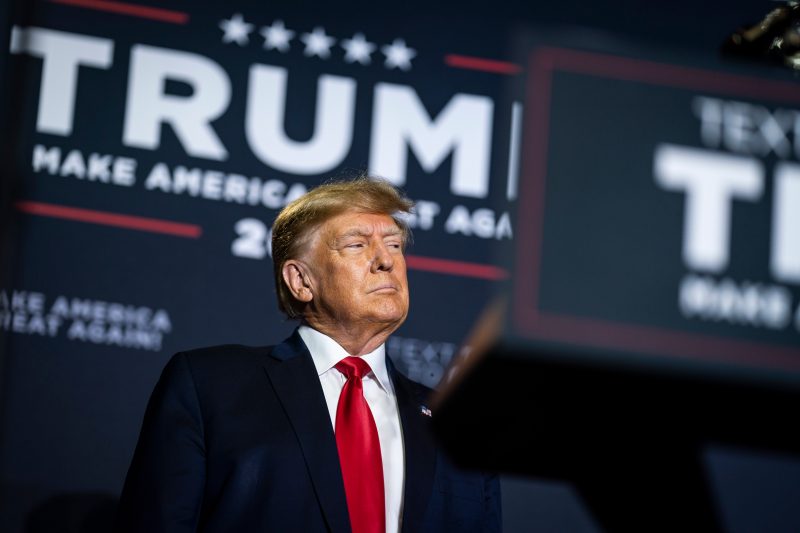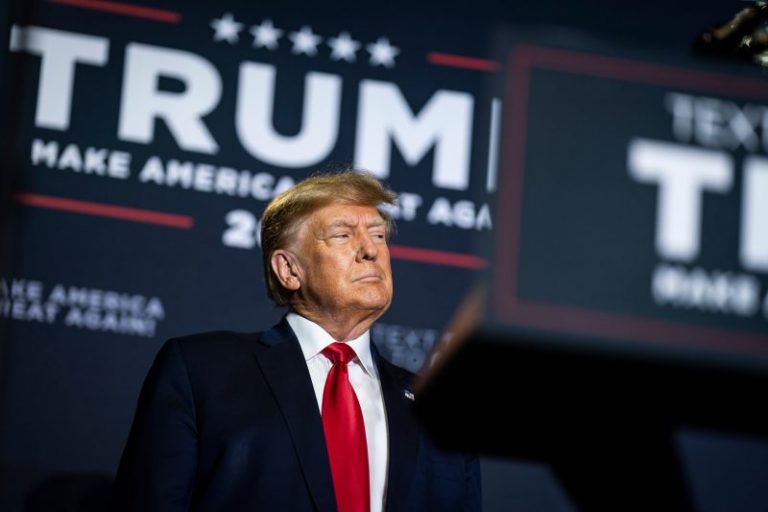
Throughout his career, Donald Trump has reveled in breaking norms. He behaved in ways no aspirant for the presidency had ever dared, then in the White House exhibited conduct that violated the values and traditions of the nation’s highest office. Now it may have caught up with him. Today he wears the most ignominious of labels: the first former president ever indicted in a federal criminal case.
The indictment handed up by a federal grand jury represents an extraordinary moment in the legal and political history of the United States. Most significantly it is legal reckoning for the former president unlike any he has yet faced and the details included in the indictment underscore the peril he now faces.
The decision to indict also carries some risks for Justice Department and the administration of President Biden, given that the defendant is the frontrunner for the Republican presidential nomination. Special counsel Jack Smith, who led the investigation, and Attorney General Merrick Garland, who allowed the indictment to go forward, had to weigh the rule of law against the potential political backlash from Trump’s allies, but it was Trump himself who helped force the prosecutor’s hand.
Ongoing investigations involving Donald Trump
1/7
End of carousel
Trump will report to federal court Tuesday in Miami to face charges in a case involving issues at the very heart of a commander in chief’s duty: the handling, or what the government says is the mishandling, of national security secrets. It also involves what the Justice Department says was the willful resistance by the former president to return hundreds of these classified documents to the National Archives, where, by law, they belong.
Twice impeached and twice acquitted, the survivor of numerous law enforcement investigations and the most disruptive politician of his time, Trump now enters the most challenging chapter of his life. A jury of his peers, rather than the elected officials who acquitted him in the impeachments, will pass judgment on the legal charges. Republican voters will render a judgment on whether he is their strongest candidate in a general election. And if he becomes their nominee, the general election voters will be asked to decide whether he should again be president.
The legal and political events will play out in parallel time, and there is no guarantee that the outcomes in court and at the ballot box will be the same. This underscores the momentous nature of the decision by the government to indict a former president and also heightens the likelihood that Trump will use the indictment to inflame the political debate, as he began to do on Thursday evening.
The charges against Trump in the new case are of a different order from the other legal cases in which he has been involved this year. That is not to minimize the seriousness of charges in the recent civil case in which a jury held him liable for sexual abuse, a case brought by writer E. Jean Carroll. Nor does it negate the significance of criminal charges pending in New York, in which the former president has been indicted on 34 counts of falsifying business records to hide hush money payments to an adult-film actress.
Still, the first case involved actions that occurred decades ago, and the second took place during Trump’s 2016 campaign and before he took office. Both cases reflected the kind of details that have shaped his public image for years and that have had minimal impact on Trump politically.
The new indictment, which Trump announced on Truth Social on Thursday evening before the Justice Department had said anything publicly, involves official conduct and actions during and after his presidency. Trump retains the presumption of innocence. The government will have to prove its case in court. Trump’s lawyers vow to win that courtroom battle. Nevertheless, the charges raise questions about Trump’s fitness to hold the presidency for a second time.
The new indictment might not be the last case of significance against Trump. The Justice Department is continuing to investigate his role in the Jan. 6, 2021, attack on the Capitol and his attempts to overturn the election. Another investigation in Georgia is looking at whether Trump and others violated the law in their efforts to overturn the results of the 2020 election in that state.
But for some time, legal experts have pointed to the current case involving classified documents as the one that represented the greatest legal risk for Trump. And as the first federal criminal charge against a former president, it carries extra weight in the eyes of history.
In the hours since Trump announced that he had been indicted, a loud and very public battle to shift the discussion from charges of Trump’s misconduct to accusations of government misconduct has erupted. It is led by the former president and amplified by his allies in the Republican Party, many of whom have rushed to his defense.
“I never thought it possible that such a thing could happen to a former President of the United States, who received far more votes than any sitting President in the History of our Country, and is currently leading, by far, all Candidates, both Democrat and Republican, in Polls of the 2024 Presidential Election,” Trump wrote on social media. I AM AN INNOCENT MAN!”
History of investigations involving Donald Trump
1/7
End of carousel
This was classic Trump, the tactics familiar and predictable after years in which he has absolved himself of responsibility for his own actions, falsely accused his critics of misconduct and played the role of victim at the hands of what he claims is a weaponized federal government.
He hopes to make this case one more example of what he says has been a years-long “witch hunt” by the government to destroy him. In turn, he is determined to tarnish if not destroy the reputation of the FBI and the Justice Department, with many in the Republican Party, once the party of law and order, joining in the attacks. Even before this latest step, Republicans’ confidence in the FBI had fallen significantly and the immediate reactions by GOP politicians, including candidates seeking to deny Trump the nomination, have voiced their displeasure with what the DOJ is doing.
But the noise of that public debate cannot obscure the gravity of the charges. However much the former president seeks to make this a political issue, yet another issue for cable television to chew, he is now caught in a legal web that will tie him up for months. He faces a determined team of federal prosecutors, led by a special counsel, Smith, who has a reputation for integrity and tough-mindedness.
This case has been in the making for months; no one could have been truly surprised by the decision to indict the former president, least of all Trump himself. That doesn’t make it any less of a test for the country. Trump has escaped in the past and been strengthened within the Republican Party whenever he has come under investigation.
No one can say whether this will be any different, whether the charges in this case are sufficient to persuade a jury to take a second extraordinary step and convict a former president of crimes against the country. The legal case will inevitably be commingled in public discussion with the presidential election, and it’s difficult to say which will bring the first judgment. The country has been in roiling waters since Trump rode down the escalator eight years ago next week to launch his bid for the presidency, and will remain there until the twin judgments — in the court of law and by the electorate — have been returned.


Comments are closed.